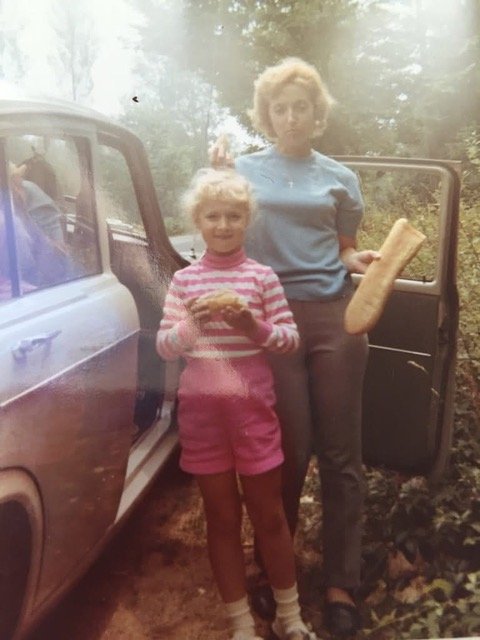Mandy Gosling’s story
My mum, Jacqueline, died of breast cancer in 1973. She was just 36, and I was nine years old. That was the beginning of my journey as a bereaved child.
At the time, I received no support for my grief. The adults around me believed it was best not to talk about “it,” and in the 1970s, there was no such thing as childhood grief support. So I carried it all in silence.
Losing my mum profoundly shaped who I am and how I see the world, sometimes for the better, sometimes not. Loss didn’t come just once. As a child, it came in different forms. By the time I was 21, all of my closest family members had either died or moved away.
Grief in childhood doesn’t simply disappear when you grow up. It’s layered and complex, and its impact can stretch far into adulthood. I was certainly no exception.
In the years that followed, I struggled with low self-esteem, deep anxiety, and a persistent fear of everyday life, all cloaked in anger and pain. The emotions were overwhelming and often surfaced in ways that made life, and relationships, feel far harder than they needed to be.
In my 40s, driven by a deep desire to understand human behavior and my own inner world, I began five years of training as a psychotherapist. That journey continued in 2016 with a two-year MA research project exploring the long-term impact of childhood parental bereavement, with a particular focus on healing.
I also trained for a year in working with couples, knowing from experience how unresolved childhood grief can deeply disrupt adult relationships.
Today, I’m completing a PhD at the University of Humanistic Studies in Utrecht. Every trip to Utrecht gives me a moment to pause and reflect, on how this all began, at age nine, as a grieving child just trying to make sense of a world that no longer felt safe.
Now, life is full. I’m a psychotherapist, researcher, PhD student, wife, mum, and nana. And just over a year ago, I joined It’s Time as their Clinical Lead.
It’s been a rewarding experience to support the team clinically and to lead group therapy sessions for young adults, giving them a space to voice their emotions, often for the first time. A core part of this work is what I call “preventative grief”, offering psychoeducation to help them understand what lies ahead and how to prepare for it. It’s a privilege to be in this role, but what I cherish most is connecting with others who were bereaved young, people who, like me, are trying to build something meaningful out of what was lost.
Many people have helped me get to where I am today, and I’m deeply grateful for their support. But I also learned how to help myself. I’m passionate about this work because I believe everyone deserves the chance to live with more peace, to love and be loved.
And even when it feels impossible, I have no doubt that healing is within reach.
I will always be shaped by what happened to me, I can’t change that. But today, I live with much more ease. Learning to accept the layers of grief as they rise, and to embrace them, even when I didn’t want to, has become one of the greatest gifts. There will be more grief, of course. There always is. But it has given me the passion to help others carry theirs, too.




